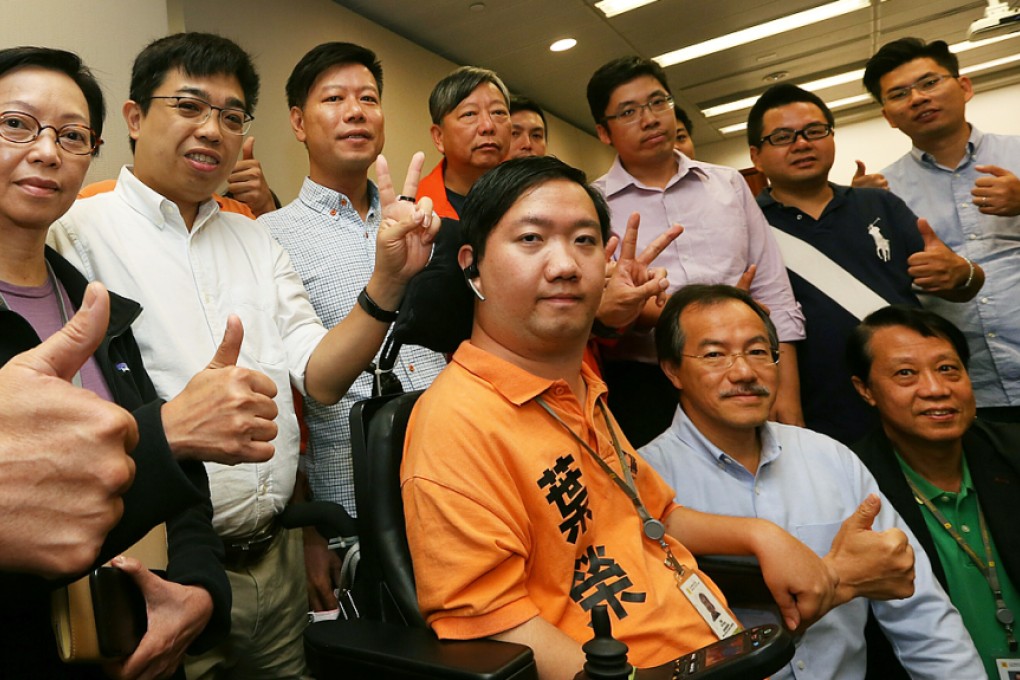Hong Kong district council elections: the top 4 surprises and what they mean to the future of politics in the city
Favourites fall, ‘Umbrella soldiers’ march, and Hong Kong’s future looks as uncertain as ever

Surprise 1: Pan-democratic heavyweights fall
Two of the most famous pro-democracy figures who had won the highest number of votes in the last Legislative Council election of 2012 suffered humiliating defeats in Sunday’s District Council elections. The Democratic Party’s Albert Ho Chun-yan won 1,617 votes, 125 fewer than former Law Society president Junius Ho Kwan-yiu, while Frederick Fung Kin-kee, of the Association for Democracy and People’s Livelihood, won 2,432 votes. His main challenger, 25-year-old Chan Wing-yan, backed by both Democratic Alliance for the Betterment and Progress of Hong Kong and the Federation of Trade Unions beat him by 99 votes. Fung’s former ally Eric Wong Chung-ki, who stood against him in the same constituency, won 215 votes.

With the loss of their district seats, the pair will not be able to run for Legco super seats next year. Yesterday’s outcome stood in sharp contrast with their stellar records of garnering more than 200,000 votes in the 2012 Legco polls. Questions now loom over whether their political careers are coming to an end.
READ MORE: Out with the old: Two big-name pan-democrats ousted in tight district council election races
Surprise 2: DAB lawmakers see dip in pro-establishment seats
Two established DAB lawmakers, Elizabeth Quat and Christopher Chung Shu-kun, lost their district council bids, but under more unexpected circumstances than their pan-democratic counterparts. Chung was defeated by a relatively unknown candidate, a so-called ‘Umbrella soldier’, Chui Chi-kin, who decided to run on the last day of the nomination period. Umbrella soldiers are candidates inspired by the Occupy protests of last year. Chung attributed his defeat to first-time voters. Quat succumbed to the Labour Party’s Yip Wing. Overall the DAB lost 17 seats, leaving it with 117 councillors. But that figure is enough for it to retain its status as Hong Kong’s biggest political party.